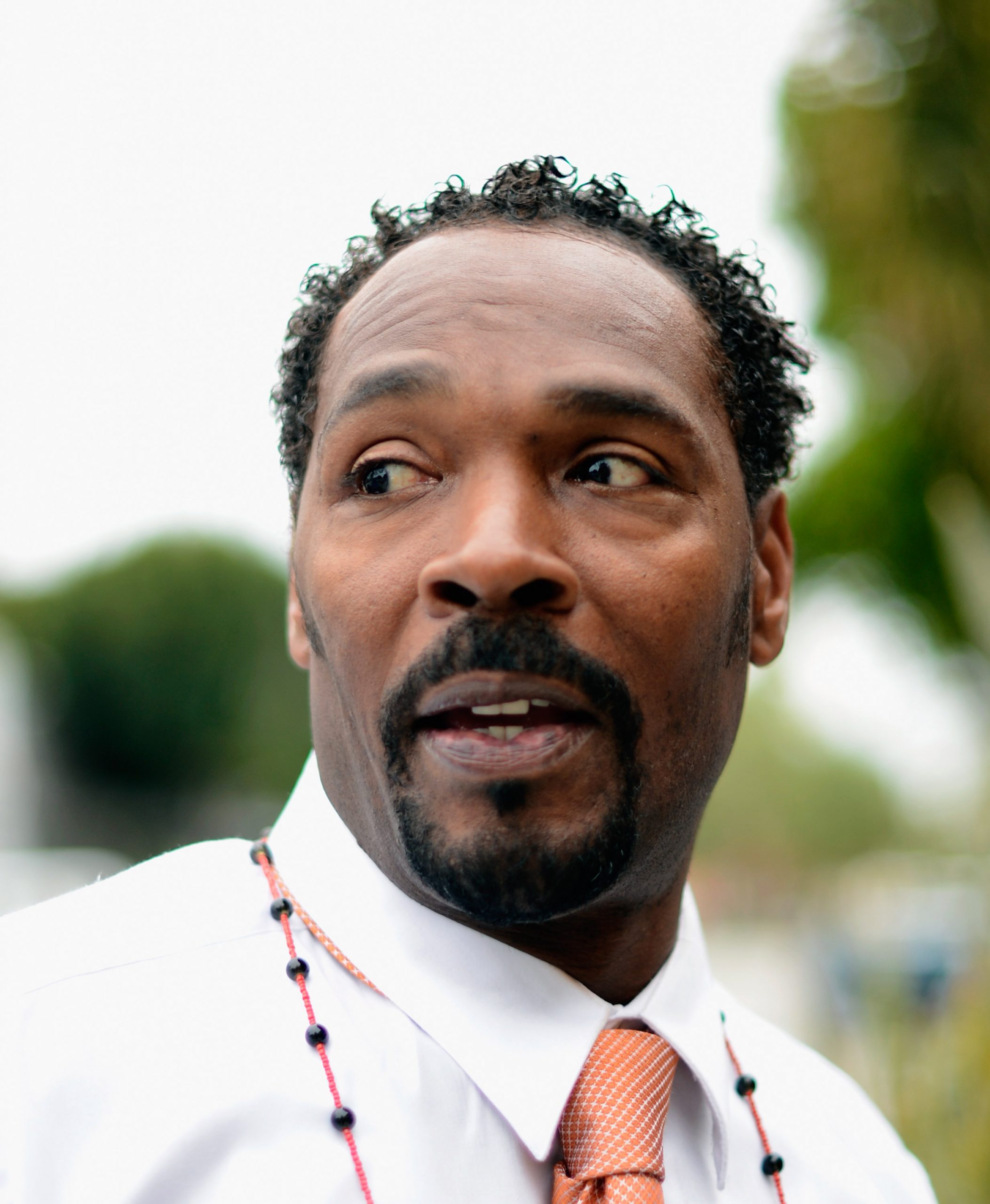Rodney King's Net Worth At Death: A Closer Look At His Financial Journey And Lasting Impact
The story of Rodney King is, in many ways, a profound chapter in American history, marking a pivotal moment in discussions about justice and community relations. People often wonder, and perhaps quite naturally, about the financial aspects of his life, especially after the highly publicized civil settlement he received. This curiosity, you know, often leads folks to ask about his financial standing, specifically his net worth at death, which is a very common question, really.
His experience, in a way, became a symbol for many, highlighting deep-seated issues that continue to resonate even today. Understanding his financial journey gives us a more complete picture of a man who, quite unexpectedly, found himself at the center of a national conversation. It’s a story, you see, that goes beyond just money; it speaks to the challenges he faced and the life he led after such a public ordeal, which is something many folks might not consider at first glance.
So, we're going to explore what is known about Rodney King's financial situation, particularly his net worth at the time he passed away. We'll look at the significant settlement he received, how those funds were managed, and the personal struggles that, you know, sometimes accompanied such a large sum of money. It’s a complex narrative, to be honest, and we'll try to put it all into perspective for you, as a matter of fact.
Table of Contents
- Rodney King: A Look at His Life
- The Incident That Changed Everything
- The Civil Settlement: What He Received
- Managing the Funds: Financial Choices and Challenges
- His Final Years: Life After the Settlement
- Rodney King's Net Worth at the Time of His Passing
- Frequently Asked Questions About Rodney King's Finances
- Reflecting on a Complex Legacy
Rodney King: A Look at His Life
Rodney Glen King was, in some respects, a regular person living in Los Angeles, California. Born in Sacramento, his early life was, you know, much like many others growing up in America. He worked various jobs, trying to make his way, and had a family he cared about very much, which is a detail often overlooked in the bigger picture.
His life, however, took an unexpected turn that placed him squarely in the public eye, a position he never sought but was thrust into. Before the events that made him a household name, he was, really, just a man trying to get by, facing his own personal ups and downs, like so many people do, honestly.
Personal Details and Biography
| Full Name | Rodney Glen King |
| Born | April 2, 1965 |
| Died | June 17, 2012 (aged 47) |
| Birthplace | Sacramento, California, U.S. |
| Nationality | American |
| Known For | Victim of police brutality, central figure in the 1992 Los Angeles riots |
The Incident That Changed Everything
On March 3, 1991, Rodney King was involved in a high-speed chase with California Highway Patrol officers on a freeway in Los Angeles. The pursuit ended, and what happened next was captured on video by a bystander, George Holliday. This video, you know, showed King being beaten by Los Angeles Police Department officers, and it sparked outrage across the country and, frankly, around the globe.
The footage, which was broadcast widely, exposed a brutal use of force and brought to light, very starkly, issues of police misconduct and racial tensions. The officers involved were charged, but their acquittal in 1992 led to the devastating Los Angeles riots, which caused immense damage and loss of life. It was a truly difficult time for the city, and the nation, really.
King himself, you know, famously appealed for calm during the unrest, asking, "Can we all get along?" His words, in a way, became a powerful plea for peace and understanding, even as the city burned. This moment, arguably, cemented his place in history, not just as a victim, but as a voice, too.
The Civil Settlement: What He Received
Following the criminal trial and the riots, Rodney King pursued a civil lawsuit against the City of Los Angeles for the injuries and damages he sustained during the beating. This legal action was, in a way, his path to seeking some form of justice and compensation for what he went through. The civil trial was a lengthy process, as these things often are, you know, with a lot of legal back-and-forth.
In 1994, after much deliberation, a federal jury awarded Rodney King a significant sum of money. He received $3.8 million in compensatory damages. This amount was meant to cover his medical expenses, lost earnings, and the pain and suffering he experienced. It was, basically, a recognition of the severe impact the incident had on his life, both physically and emotionally, which is a big deal.
While $3.8 million sounds like a very large sum, and it certainly is, it's important to consider that a portion of this money would have gone towards legal fees and other related expenses. So, the amount he actually had to use for his personal life was, in a way, somewhat less than the headline figure. This settlement was, of course, a major turning point in his financial story, as a matter of fact.
It was a landmark settlement, too, in the history of civil rights and police accountability cases. For many, it represented a small victory, a sign that individuals could, perhaps, seek redress when their rights were violated. However, for King himself, the money came with its own set of challenges, as we'll explore, you know.
Managing the Funds: Financial Choices and Challenges
Receiving a large sum of money, especially under such public and traumatic circumstances, can be incredibly difficult to manage. Rodney King’s settlement was, in a way, a double-edged sword. While it offered financial security, it also brought its own set of pressures and complexities. He was, after all, a private person thrust into a very public spotlight, which is tough, you know.
Reports over the years suggested that King faced significant challenges in managing his newfound wealth. He was, apparently, generous with his family and friends, helping them out when he could. This generosity, while kind-hearted, can sometimes lead to funds being depleted faster than one might expect, as a matter of fact.
He also made some personal investments, including, you know, a record label that didn't quite take off as hoped. Like many who suddenly come into a lot of money, he had to navigate a world of financial decisions without, perhaps, the kind of guidance or experience that would typically be needed for such a large sum. It’s a common story, in some respects, for lottery winners or others who experience sudden wealth.
Beyond financial decisions, King also battled with personal demons, including issues with substance use, which were, you know, exacerbated by the trauma he endured. These struggles, sadly, can have a very significant impact on a person's financial stability, regardless of how much money they have. His life after the settlement was, arguably, a continuous effort to find peace and stability, both personally and financially, which is a very human struggle, really.
The money, it seems, did not erase the pain or the challenges of his past. Instead, it provided a different kind of burden, one of expectation and the weight of a very public identity. It’s a reminder that money, while important, doesn't always solve every problem, especially deeply personal ones, you know.
His Final Years: Life After the Settlement
In the years following the civil settlement, Rodney King largely tried to live a more private existence, though his name remained, you know, firmly etched in the public memory. He made occasional public appearances, sometimes speaking about his experiences and advocating for peace and understanding, which was very much in line with his famous plea.
He continued to face personal struggles, including further run-ins with the law and battles with addiction. These challenges, sadly, were a persistent part of his life, reflecting the deep scars left by the events of 1991. It was, apparently, a continuous uphill battle for him to find a sense of normalcy and calm, which is something many people can relate to, in a way.
King also appeared in a reality television show, "Celebrity Rehab with Dr. Drew," in 2008, where he openly addressed his addiction issues. This was, you know, a very public attempt to get help and share his story, showing a vulnerability that many found quite moving. He was, basically, trying to heal and move forward, despite the immense pressure he lived under.
His life, in a sense, became a quiet struggle for redemption and peace, away from the intense media scrutiny that once defined his existence. He was, you know, trying to make the best of his circumstances, like so many people do, even when things are incredibly tough. His final years were, arguably, a testament to his resilience, even amidst ongoing difficulties.
He married Cynthia Kelley in 2010, finding some companionship and stability in his later life. Despite the challenges, he seemed to be, in some respects, working towards a more settled existence, which is always a good thing, you know.
Rodney King's Net Worth at the Time of His Passing
When Rodney King passed away on June 17, 2012, at the age of 47, the question of his financial standing naturally arose. Given the $3.8 million settlement he received years earlier, many wondered what remained of that money. It's a very common question when someone who received a large sum of money passes on, you know.
Public reports and accounts from those close to him suggested that by the time of his death, the majority of the settlement money had been spent. This included, as we talked about, legal fees, personal expenses, assistance to family and friends, and some less successful ventures. It's a common pattern, unfortunately, for individuals who receive large, unexpected sums without extensive financial planning, as a matter of fact.
While an exact figure for his net worth at death is not, you know, publicly available or widely confirmed, it is generally understood that he was not a wealthy man in the conventional sense. The substantial settlement he received years prior had, apparently, been largely disbursed. His estate was not reported to be of significant value, which is something to consider.
It's important to remember that net worth is a snapshot of assets minus liabilities at a specific moment. For Rodney King, his financial story was less about accumulating wealth and more about surviving the aftermath of a traumatic event and trying to build a life. His legacy, too it's almost, really, about the impact of his case on society and the ongoing conversation about justice, rather than his personal fortune, which is a key distinction.
So, while he received a considerable sum, his net worth at death was, by most accounts, quite modest, reflecting a life marked by both public notoriety and very private struggles. This is, you know, a very human outcome for someone who faced such unique circumstances, honestly.
Frequently Asked Questions About Rodney King's Finances
1. How much money did Rodney King receive from his civil lawsuit?
Rodney King was awarded $3.8 million in compensatory damages from his civil lawsuit against the City of Los Angeles in 1994. This amount was meant to cover his injuries, pain, and other losses, as a matter of fact.
2. What happened to Rodney King's settlement money?
Reports suggest that the settlement money was used for various purposes, including legal fees, personal living expenses, supporting family and friends, and some business ventures that did not, you know, pan out. Over time, the majority of the funds were spent, which is a common occurrence with large settlements.
3. Was Rodney King wealthy when he passed away?
Based on public information and accounts from those close to him, Rodney King was not considered wealthy at the time of his passing. The significant settlement he received years prior had, apparently, been largely used up, leaving him with a modest financial standing, in some respects.
Reflecting on a Complex Legacy
Rodney King's life and the events surrounding it remain a powerful part of American history. His financial journey, from a significant settlement to a more modest standing at his passing, is just one piece of a much larger and very human story. It shows, you know, that money, even a lot of it, doesn't always bring an end to personal challenges or the weight of a public past.
His experience, in a way, continues to prompt important conversations about social justice, policing, and the challenges individuals face when thrust into the national spotlight. His plea for peace, "Can we all get along?", still resonates, reminding us of the enduring need for understanding and community, even today. Learn more about social justice issues on our site, and link to this page the history of civil rights for more context.

Rodney Atkins Net Worth (Update) - Famous People Today

Rodney King Net Worth - Wiki, Age, Weight and Height, Relationships

Rodney King Net Worth - Wiki, Age, Weight and Height, Relationships